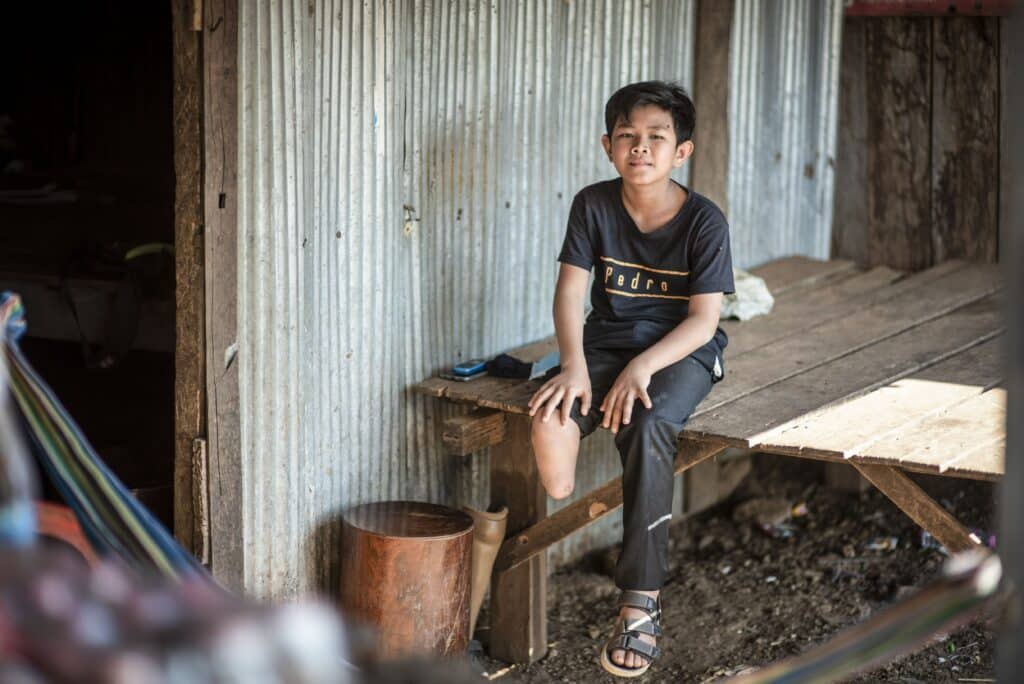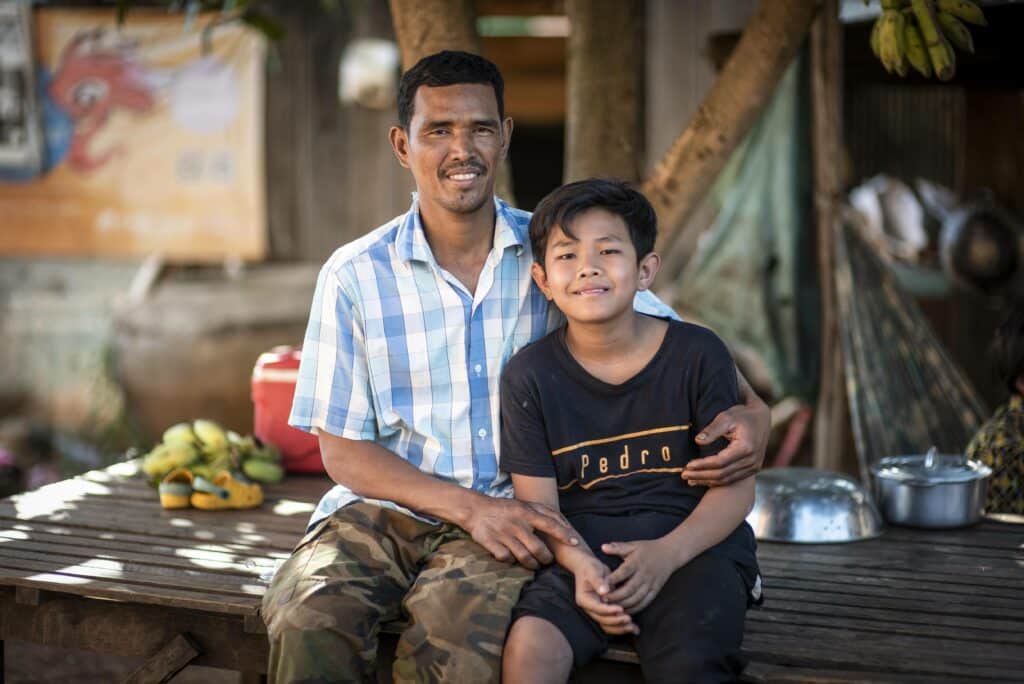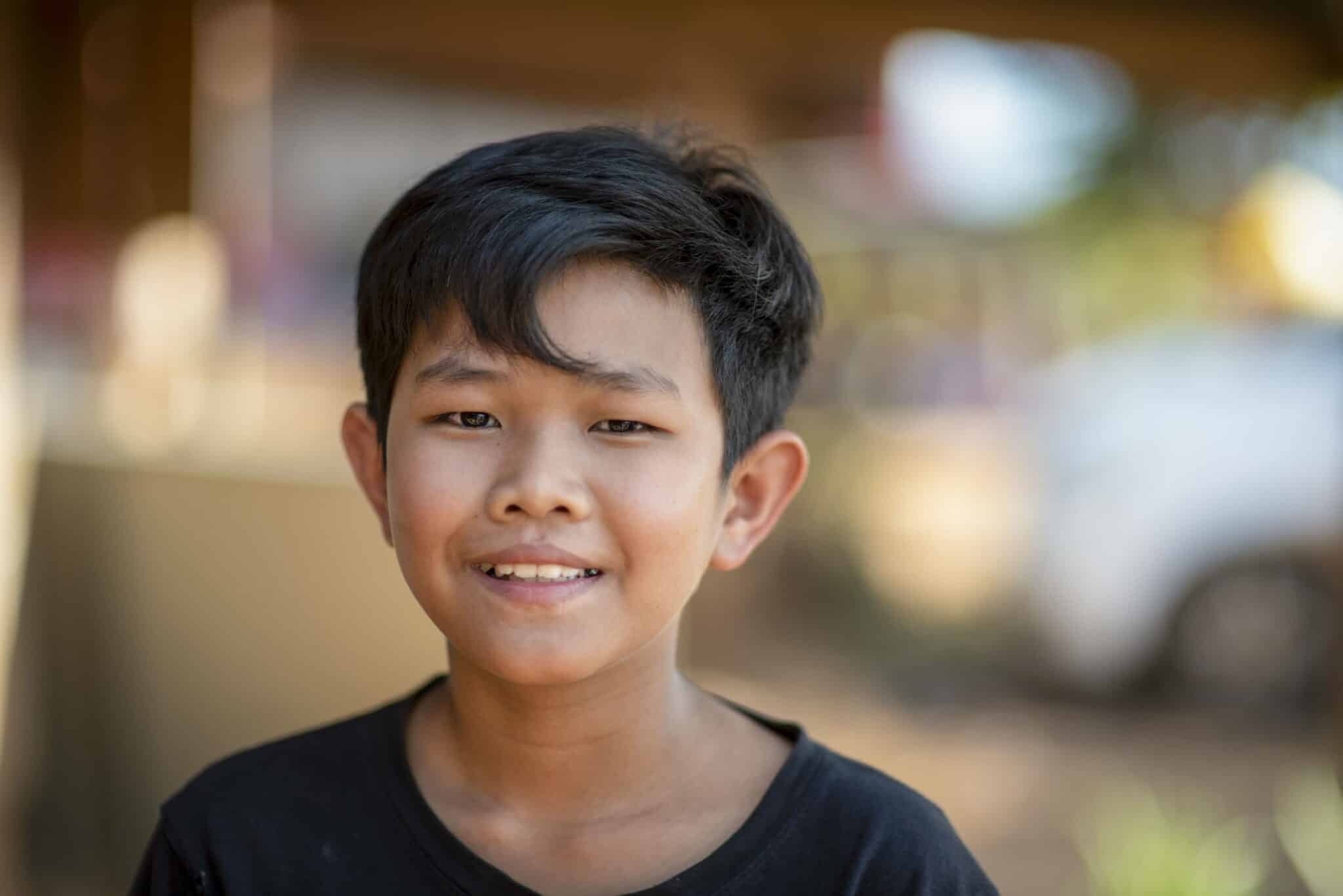Chandarak stepped on a landmine at a nearby mango farm and lost part of his leg.
“My name is Chandarak. I’m 12 years old and I am an amputee.
When I was 9 years old, my father and I went to visit a nearby mango farm just down the road only about 2 kilometers from here. My Dad was talking to the landowner about farming some of the land because it was closer than our current farm which is more like 10 kilometers away. We were walking towards the area he wanted to give my Dad to farm. I got sidetracked and when I looked up, they were further along. I started running toward my father to catch up when I stepped on a landmine. It exploded instantly. No one knew there was a landmine there. It shattered my right foot. The first hospital was nearby in Preah Vihear. they told my dad they had to amputate my leg below the knee. He rushed me to Siem Reap many hours’ drive away but they told him the same thing. I don’t remember this all happening, just waking up in the hospital the next day. When I heard they had to amputate, I cried.

Life changed so much after the accident. It is not like it was before, even after I healed. It’s hard missing part of my leg. I can’t play football with my friends like before. Sometimes in the evenings my brother takes me to the football pitch. Mostly I watch them play. Sometimes they let me play as goalkeeper. I think they feel sorry for me. But it’s the not the same. While playing, my leg hurts a lot, but I try to bear the pain. I love football. I miss running and chasing the ball. I still collect cards of all the national football players like “Long Piseth” and “Chan Vathanaka”.
I go to Sror Mov Primary School and I’m in grade 6, I missed a lot of school because of my accident but I am working hard to catch up and get back on track. I really like school. I love Khmer Language Arts the most. And I really like to read books. There are 35 students in my class. I’m in school in the morning. In the afternoon, I get tutoring for Math and Khmer Language Arts for about 2 hours. When I’m not in school, I mostly stay home with my brother and mother.
After my leg was amputated my dad took me to the “Rehabilitation Center” in Siem Reap and they fitted me with a prosthetic leg for free. This helped a lot as I could do so much more. I have been using it for a few years now and it’s starting to get very uncomfortable because I have grown, and it doesn’t fit right anymore. At home, I take it off. If I need to travel around the house, I just hop around with my other leg. I feel much more comfortable doing that. Sometimes, I use crutches to move around. But that can hurt too.

I was so happy to meet the APOPO Victim Assistance team and hear that they wanted to support me in getting a new prosthetic. I was excited to hear about their work with rats and I hope they will stop this from happening to anyone else! They told us they wanted to help me get a new prosthetic leg, but also get physiotherapy so I can use it better, as well as counseling to help me process the trauma and change. These things are actually free of charge at the Center with support from Humanity & Inclusion but the center is far away and we haven’t been able to go. APOPO will provide us with transport to the rehabilitation center and back home to get the treatment and support I need. I am so grateful for this opportunity, I can’t wait! Thank you APOPO!”

